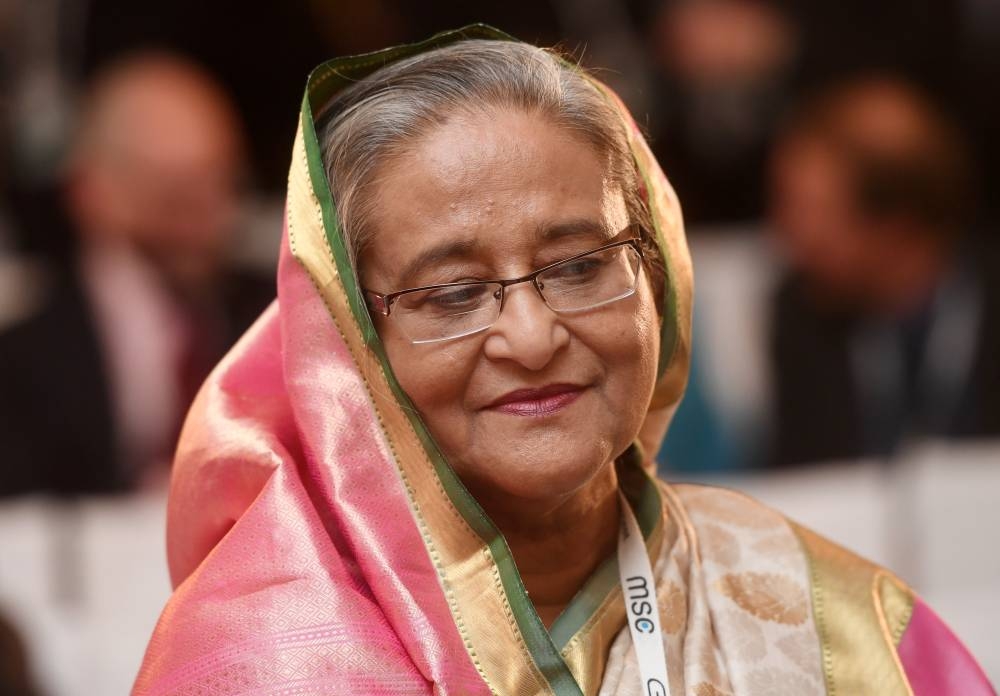Hasina's Party Faces Election Exclusion In Bangladesh

Table of Contents
The Opposition's Strategy and its Impact
The opposition's concerted effort to bar the Awami League from participating in the upcoming Bangladesh elections is a multifaceted strategy, relying on both legal and political maneuvers. Their aim is to weaken the ruling party's dominance and reshape the political landscape to their advantage. This strategy has involved a series of actions designed to undermine the Awami League's credibility and legitimacy.
-
Examples of opposition statements or actions: The opposition has repeatedly accused the Awami League of electoral malpractice and authoritarian tendencies, citing specific instances of alleged vote rigging and suppression of dissent. Public statements from key opposition figures have directly called for the Awami League's disqualification.
-
Details about specific legal challenges or political maneuvers: Legal challenges have been filed, questioning the legality of the Awami League's registration or the eligibility of its candidates. Furthermore, the opposition has leveraged alliances and strategic partnerships to maximize their impact.
-
Analysis of the opposition's strategy and its effectiveness: The opposition's strategy is a high-stakes gamble. While it has successfully created uncertainty and raised concerns, its ultimate effectiveness hinges on several factors, including the response of electoral authorities and the international community. The success of these tactics could significantly alter the power dynamics in the country's political system.
The Awami League's Response and Counter-Strategies
Facing calls for its exclusion from the Bangladesh elections, the Awami League has adopted a multi-pronged approach. Their response aims to defend their legitimacy, counter the opposition's narrative, and secure their participation in the upcoming electoral process.
-
Statements by Sheikh Hasina or other party leaders: Sheikh Hasina and other senior Awami League leaders have vehemently rejected the accusations of electoral misconduct, portraying the calls for their exclusion as an attempt to undermine democracy. They have emphasized their commitment to free and fair elections.
-
Legal actions taken by the Awami League: The Awami League has responded with legal challenges against the opposition's actions, seeking to protect their right to participate in the elections. They are actively engaging in legal battles to counter the accusations and maintain their standing.
-
Public rallies or protests organized by the party: Large-scale public rallies and protests have been organized to demonstrate popular support for the Awami League and counter the opposition's narrative. These displays of public support aim to showcase the party's continued strength and influence.
-
International outreach and support sought: The Awami League has actively sought international support, appealing to international organizations and foreign governments to uphold democratic principles and ensure fair elections in Bangladesh. This engagement with the international community is a key aspect of their strategy.
International Concerns and Reactions to the Potential Election Exclusion
The potential exclusion of the Awami League from the Bangladesh elections has sparked significant concern internationally. Several international bodies and individual nations have voiced apprehensions about the potential ramifications for Bangladesh's democratic trajectory.
-
Statements from international organizations: The UN and other international organizations have stressed the importance of free and fair elections and expressed concern about the potential for political instability if the Awami League is excluded. They have called for a transparent and inclusive electoral process.
-
Reactions from specific countries or diplomatic missions: Several countries have issued statements expressing their concerns, urging all parties to ensure a peaceful and democratic electoral process. Diplomatic missions have been active in monitoring the situation and engaging with relevant stakeholders.
-
Potential economic or political consequences for Bangladesh: The exclusion of the Awami League could trigger economic instability and potentially impact foreign investment and relations with international partners. The implications for Bangladesh's international standing and economic prospects are substantial.
Potential Implications of Awami League's Absence from the Bangladesh Elections
The absence of the Awami League from the Bangladesh elections would have profound and far-reaching consequences. The potential impact on the nation's political stability, democratic processes, and socio-economic development is a matter of serious concern.
-
Potential for increased political instability: The exclusion could lead to widespread protests, violence, and civil unrest, jeopardizing the country's fragile peace and security. This instability could disrupt the social and economic order.
-
Impact on democratic processes and free and fair elections: The exclusion would seriously damage the credibility of the electoral process and raise significant concerns about the future of democracy in Bangladesh.
-
Socio-economic consequences: Political instability could severely impact the economy, potentially leading to reduced foreign investment, job losses, and a decline in living standards.
-
Possible impacts on human rights: A climate of political instability could lead to increased human rights abuses, including restrictions on freedom of speech and assembly.
Conclusion
The possibility of the Awami League's exclusion from the upcoming Bangladesh elections poses a significant threat to the nation's stability and democratic future. The opposition's strategy, the Awami League's countermeasures, and the international community's reaction all contribute to a complex and volatile situation. The potential implications – ranging from widespread political instability to severe socio-economic consequences – are dire. It is crucial to remain vigilant and follow the developments closely. We urge readers to stay informed about the evolving situation regarding the exclusion of Hasina's party from the upcoming Bangladesh elections and the potential political crisis related to the Awami League's participation in Bangladesh's elections by following reputable news sources and engaging in informed discussions about the future of Bangladeshi politics. The stakes are high, and the need for a peaceful and democratic resolution is paramount.

Featured Posts
-
 The Single Biggest Obstacle For Top Nba Teams
May 15, 2025
The Single Biggest Obstacle For Top Nba Teams
May 15, 2025 -
 Padres 2025 Season A Look Ahead To The Cubs Home Opener
May 15, 2025
Padres 2025 Season A Look Ahead To The Cubs Home Opener
May 15, 2025 -
 Offseason Review Examining The Los Angeles Dodgers Email Updates
May 15, 2025
Offseason Review Examining The Los Angeles Dodgers Email Updates
May 15, 2025 -
 Rays Sweep Padres A Comprehensive Look At The Series Victory
May 15, 2025
Rays Sweep Padres A Comprehensive Look At The Series Victory
May 15, 2025 -
 Rays Sweep Of Padres Highlights Teams Strength
May 15, 2025
Rays Sweep Of Padres Highlights Teams Strength
May 15, 2025
